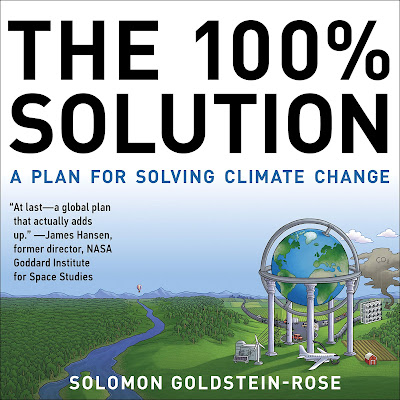Climate change is one of the most pressing challenges facing our world today, and it will require a concerted global effort to address it effectively. This issue is characterized by the accumulation of greenhouse gases, such as carbon dioxide, in the atmosphere, leading to increased temperatures, rising sea levels, and changes in weather patterns that threaten food supplies, human health, and biodiversity.
The root cause of climate change is the burning of fossil fuels for energy, transportation, and other purposes. Therefore, to address climate change, we need to reduce our dependence on fossil fuels and transition to renewable energy sources such as solar, wind, and hydropower.
One of the most important steps we can take to solve climate change is to reduce our greenhouse gas emissions. This requires action at all levels, from individual households and businesses to national governments and international organizations. There are several ways in which we can achieve this goal.
First, we need to reduce our reliance on fossil fuels. This can be achieved by transitioning to renewable energy sources such as solar, wind, and hydropower. Governments can encourage this transition by providing incentives and subsidies for renewable energy projects and by phasing out subsidies for fossil fuel industries.
Second, we need to improve energy efficiency in buildings, transportation, and industry. This can be achieved through measures such as insulation, energy-efficient appliances, public transportation, and efficient industrial processes. Governments can encourage energy efficiency by setting standards and providing incentives for energy-efficient technologies.
Third, we need to reduce emissions from agriculture and deforestation. This can be achieved by promoting sustainable farming practices, reducing food waste, and protecting forests and other natural ecosystems. Governments can provide support for these initiatives through subsidies and incentives.
Fourth, we need to shift our consumption patterns towards more sustainable products and services. This can be achieved by promoting sustainable lifestyles, reducing consumption of meat and dairy products, and promoting circular economies that minimize waste and encourage recycling. Governments can support these efforts through education campaigns and policies that encourage sustainable consumption.
Fifth, we need to invest in research and development to advance new technologies and innovations that can help us solve climate change. This includes developing new renewable energy technologies, improving energy storage systems, and developing new materials and processes that can reduce emissions from industry.
In addition to these measures, we need to build resilience to the impacts of climate change that are already occurring. This includes improving infrastructure to withstand extreme weather events such as floods and storms, developing early warning systems for natural disasters, and adapting agricultural practices to changing weather patterns.
To achieve these goals, we need to work together at all levels, from individuals and communities to governments and international organizations. This requires strong leadership and political will, as well as public support for action on climate change.
International cooperation is essential to solving climate change, as greenhouse gases do not respect national borders. The Paris Agreement, adopted in 2015, provides a framework for international cooperation on climate change, with the goal of limiting global warming to well below 2 degrees Celsius above pre-industrial levels. To achieve this goal, countries have committed to reducing their greenhouse gas emissions and regularly reporting on their progress.
However, there is still much work to be done to achieve the goals of the Paris Agreement and to solve climate change. Governments need to take more ambitious action to reduce emissions and transition to renewable energy, and individuals and businesses need to make changes in their own behavior and practices. We need to continue to invest in research and development to advance new technologies and innovations, and we need to build resilience to the impacts of climate change that are already occurring.
In conclusion, solving climate change is one of the greatest challenges of our time, and it will require a concerted global effort to address it effectively. We need to reduce our greenhouse gas emissions by transitioning to renewable energy sources, improving energy efficiency, reducing emissions from agriculture, and def etc.
read more: https://naturebookbd.blogspot.com/2023/02/helping-rivers-and-climate




.jpg)

No comments:
Post a Comment